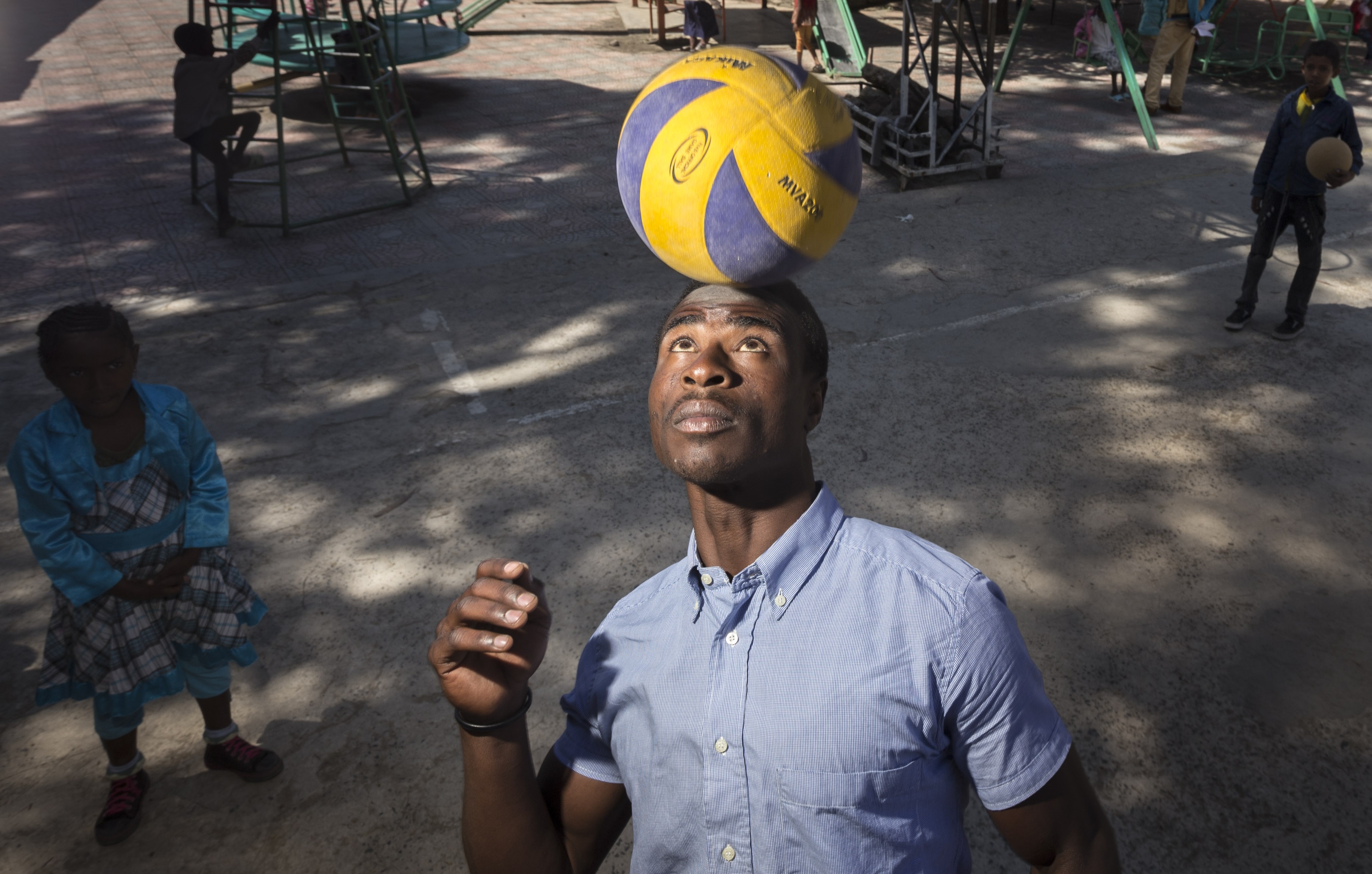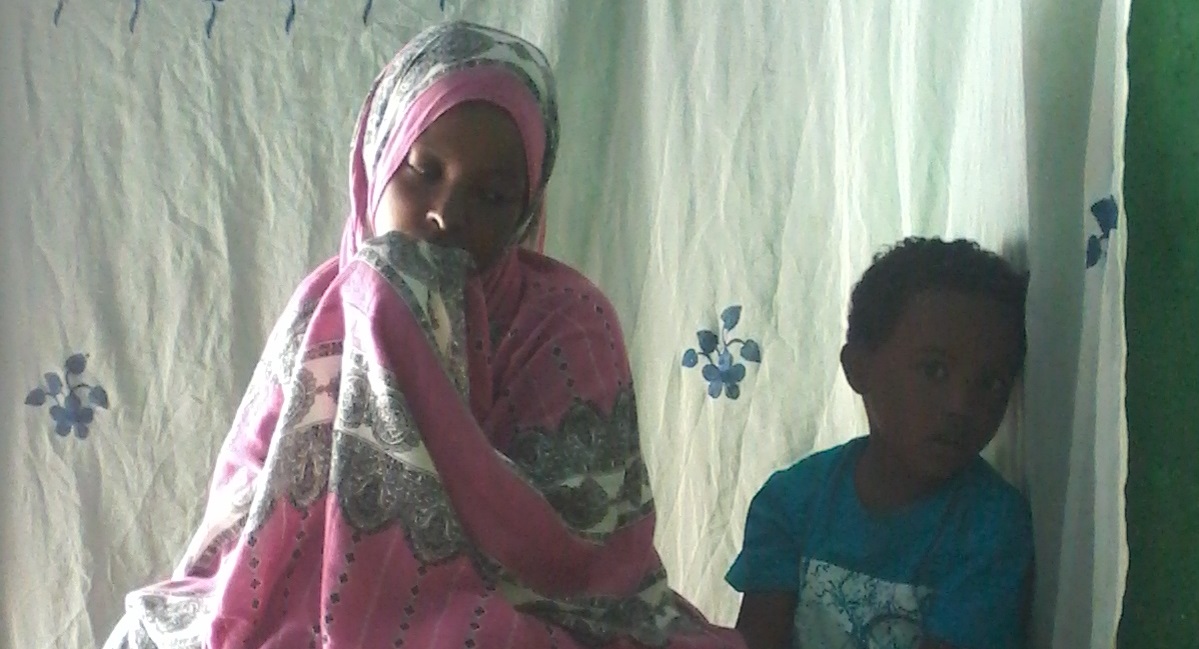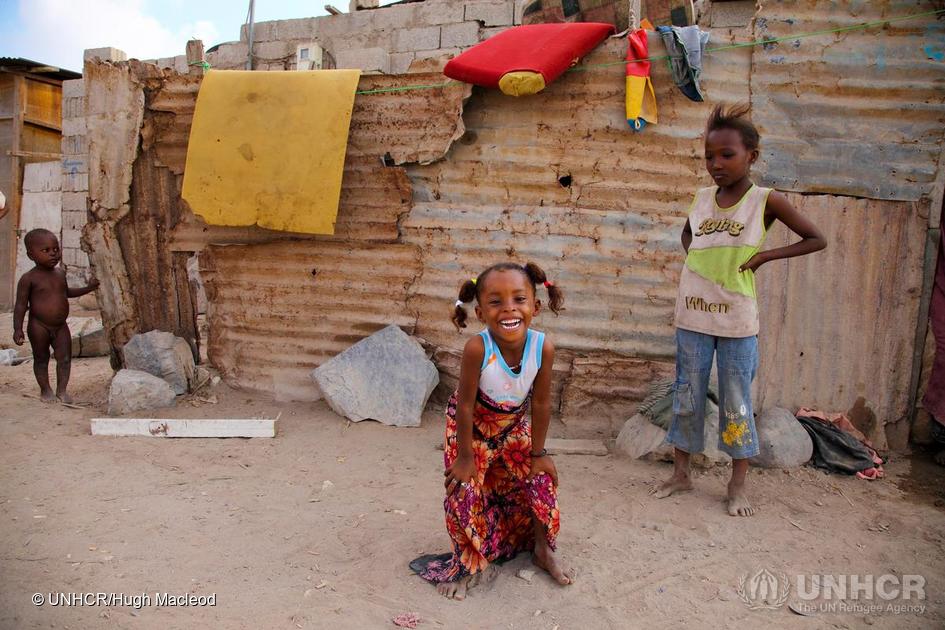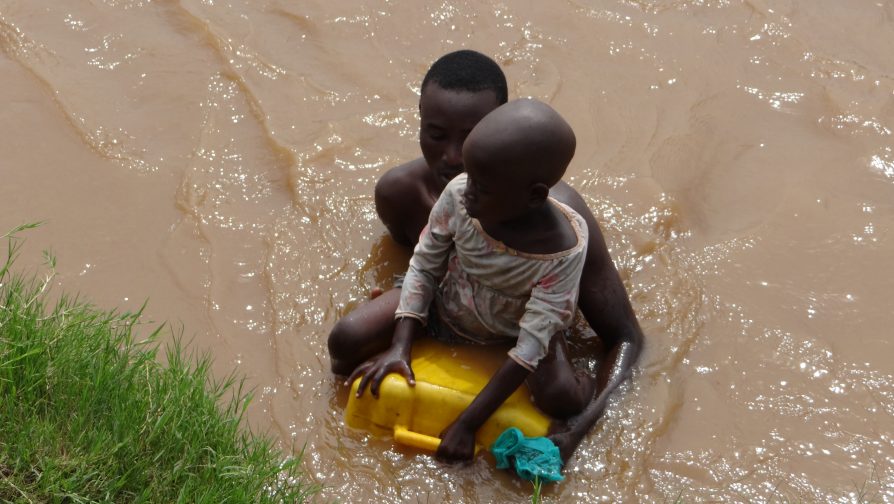Congolese refugees defy strong currents in crocodile-infested river to seek safety in Burundi
250 refugees cross 100-metre wide Rusizi River seeking safety in Burundi
BUJUMBURA, 16 December 2016 (UNHCR) — Last week 250 Congolese refugees braved strong currents to cross the 100 meter-wide crocodile-infested Ruzizi River on makeshift rafts. They said they had fled fighting in the village of Nyamoma, South Kivu.
“The situation was very bad,” 60 year old Shupi said. “People were dying in our village…we heard gunshots and we ran.” Shupi crossed the river with his wife Ancilla in an inflated plastic bag. As he spoke, she stood quietly beside him, her unblinking wide open eyes conveying the trauma she had experienced.
The refugees moved on foot to Buganda Commune, about 6 kilometres from the river. From there, they were transported by UNHCR and partners to Cishemere transit centre in the western province of Cibitoke which borders the Democratic Republic of Congo. At Cishemere where refugee protection interventions include registration and identification of persons with special needs, refugees also received food and basic household items.
“The night was very cold. We had no blanket. I did not sleep fearing attacks by hippos and crocodiles.”
45 year old Divine crossed with her two children aged seven and thirteen. “We reached the river in the evening. There was no one to help us cross, so we slept in that bush over there,” she said pointing towards a tree in the tall grass beyond the river. “The night was very cold. We had no blanket. I did not sleep fearing attacks by hippos and crocodiles.”
Divine had carried a few clothes and two roosters. She sold the birds to a Burundian she met at the river bank in order to pay 3,000 Burundian Francs (about $2) to the man who helped them cross the river and to buy some food for her hungry children.
Furahisha crossed with her five children. “My heart was beating fast. I thought my life journey on this earth was ending in that river,” she said. “I felt nauseated as I clung tightly to the plastic jerry can floating at an incredible speed in the fast current”.
Furahisha watched her children float down on the river clinging a plastic jerry cans held by a a young man. Her youngest child was tied to his back. “I was praying silently for my children’s safety,” she said.
“I felt nauseated as I clung tightly to the plastic jerry can floating at an incredible speed in the fast current”.
Though all her five children landed on the Burundi side of the river safely, Furahisha was worried. She did not know the whereabouts of her 13 year old son. He was out grazing the cattle when the family took flight. She hoped he had already crossed or that he would join the rest of the family in Burundi.
UNHCR’s Representative in Burundi, Abel Mbilinyi said efforts to reach and assist new arrivals by moving closer to the Rusizi River had failed as portions of the access roads were impassable.
“We have strengthened reception and accommodation capacity at Kavumu camp,” he added. “And in Cishemere Transit center we are building an emergency reception hangar and a distribution hangar along with two additional accommodation blocs .”
Space in Kavumu, located in the eastern province of Cankuzo, is insufficient to accommodate a large influx of refugees. As such, the identification of a site for a fifth refugee camp is underway.
Instability and activities of rebel groups in south Kivu often prompt people to flee to Burundi. More than 60,000 DRC nationals are currently refugees in Burundi, most of them from the South Kivu.
An average of 400 DRC refugees arrive in Burundi every month. Since the beginning of this year 4,577 DRC new arrivals have been registered. Refugees are currently hosted in four camps as well as in urban communities in Bujumbura, the capital of Burundi.
For more information, please contact Bernard Ntwari, ntwarib@unhcr.org
See also

Football-crazy refugee aspires to join the ranks of African superstars like Didier Drogba

I want a better life for my children


